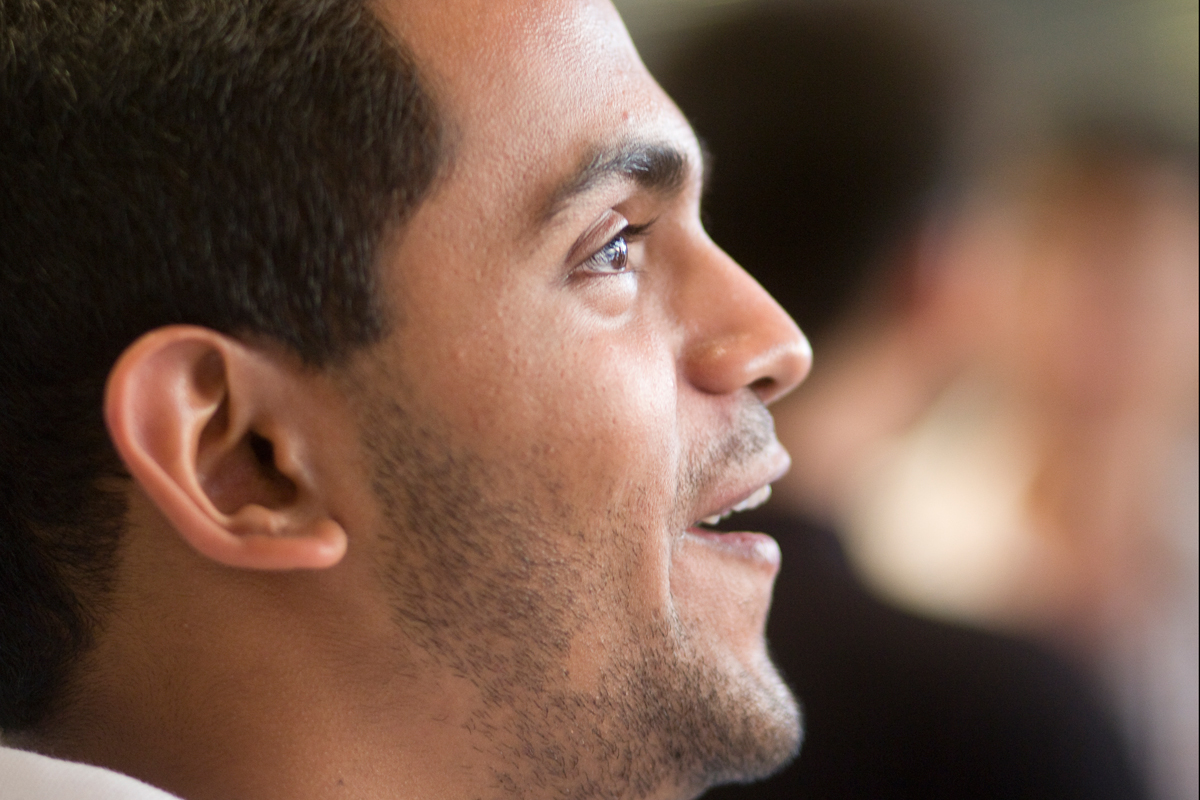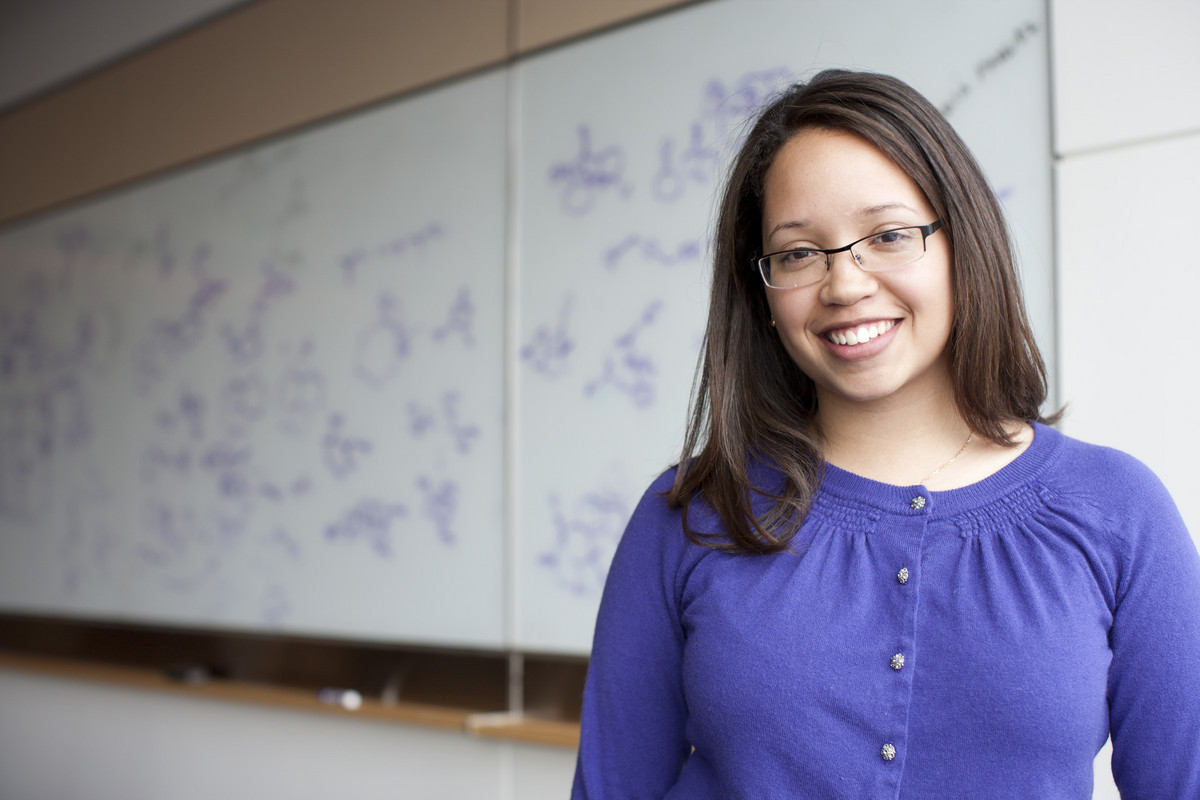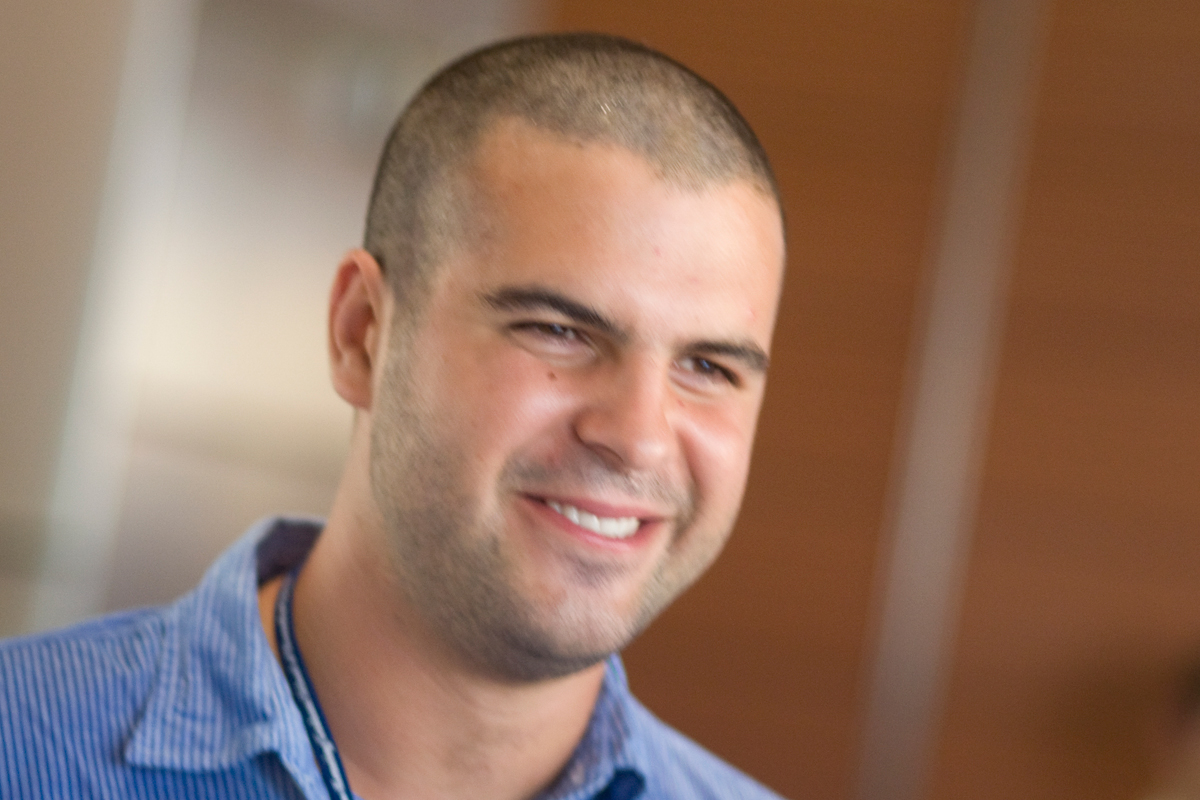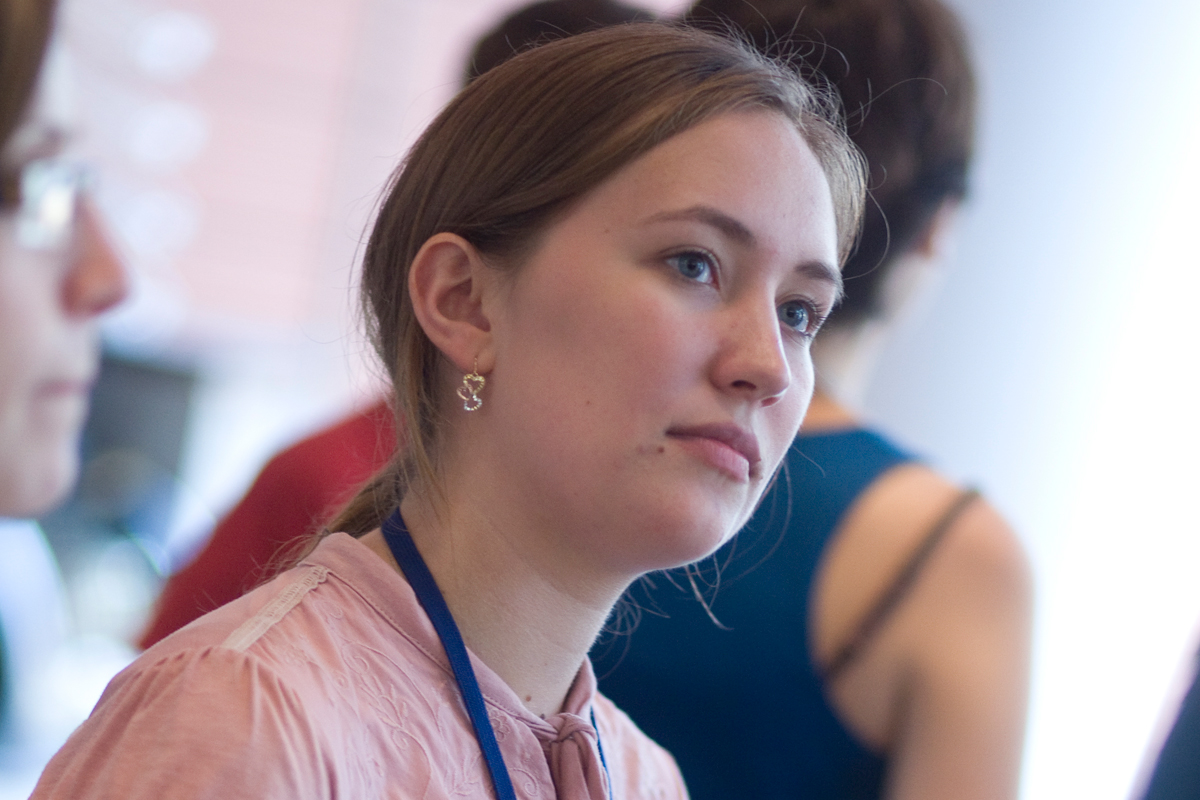Our current first-year students arrived on July 27, 2009, and during their first laboratory rotation began laying the foundation for developing a dissertation. After five weeks of bench work, they entered the classroom to tackle the core course, taking breaks from this didactic phase of the curriculum to return to bench work for two more laboratory rotations during the year. Added to this rigorous schedule, students made four visits to the clinic to observe physicians caring for patients, participated in the President’s Research Seminar Series Journal Club, and attended the Graduate Student Seminar in which students in the second year and beyond gave talks on their research. At the end of each laboratory rotation period, students gave ten-minute talks on their rotation projects.
This intense first-year curriculum prepares students to select a thesis mentor and transition to full-time research at the beginning of their second year. Here four of our first-year students reflect on the impact of the core curriculum on their careers.

“The intensity and structure of the core course were such that it constantly forced me to think about science in new ways, encouraging me to ask relevant scientific questions, make intelligent hypotheses, and design elegant experiments to test these hypotheses. These and others skills acquired over the past year will no doubt go a long way in shaping my scientific career. Learning from experts in their respective fields was an added bonus. Overall, I’m extremely satisfied with my decision to come to Gerstner Sloan Kettering and would encourage any future students interested in being involved with cutting-edge research to do the same.”
— Prashant Monian

“As the time to choose a laboratory in which to conduct my dissertation project approaches, I feel confident that the Gerstner Sloan Kettering Core Course has set the framework for me to be analytical and thoughtful. The diverse topics of the journal discussion not only broadened my knowledge base but also emphasized the importance of taking an integrative approach to biological questions. Most importantly, through the clinical rotations I’ve learned the importance of integrating the translational aspect of science with the daily basic biology in the laboratory to advance treatment of human malignancies. I feel excited and privileged to be part of this amazing community.”
— Cindy Puente

“Coming to Memorial Sloan Kettering for my graduate education has been a great decision. While looking at other programs, I found many of them to be too narrow in focus, and while I considered MD-PhD programs the time commitment was daunting. I saw the Gerstner Sloan Kettering program as one where I could learn how to approach a biological question from all angles and disciplines and not get caught in the limited perspective of a defined field of study. Furthermore, the opportunity at Gerstner Sloan Kettering to interact with so many world-class physicians while developing a solid basic scientific foundation seemed like the best preparation for my career goal of studying human disease at the bench. In this regard the program has completely met my expectations, has given me a sense of purpose, and has potentially saved me four years of further schooling! I have found Memorial Sloan Kettering to be the most cohesive and exciting scientific environment that I’ve ever been a part of. Not only is the core course very well suited to my learning style, but it has been a great introduction to many of the investigators, clinicians, and their research at Memorial Sloan Kettering. I can’t wait to join a lab and see what I can contribute to the discussion.”
— Oakley Olson

The first-year Gerstner Sloan Kettering core course curriculum has been invaluable for fostering creative and critical thinking. Our discussions of scientific papers in class and of lectures and problem sets outside of class have been both interesting and instructive. Additionally, the combination of lab rotations and clinic visits has exposed me to the necessary preparatory knowledge for future work in my thesis lab.
— Lindsay Saunders